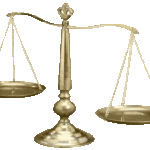
To boil it down to the simplest level, A and B book are terms that refer to how a broker handles the risk associated with the business, which is represented by all the trades currently open at the broker. Let’s consider a very basic example.
Let’s say Trader A has bought 100,000 EUR/USD while the Trader B has sold 100,000 EUR/USD. In this case, the broker faces no risk as any uptick in price on Trader A’s account, reflects a downtick in price on Trader B’s account.
Scenario
Trader A Buys 100,000 EUR/USD at 1.2140
Trader B Sells 100,000 EUR/USD at 1.2140
EUR/USD rises to 1.2240
Trader A has a net profit of 100 pips (+100 pips)
Trader B has a net loss of 100 pips (-100 pips)
Total Risk to the Broker: 100 pips – 100 pips = 0
How A Book Works
In the above example, the broker is taking on no associated risk since their risk is hedged. This is no different than having a hedged position on a trading account. In fact, a broker’s book of business is much like a trading account, the only difference being that the broker isn’t placing the orders.
In the above case, the broker has 2 choices, either to send both of the orders to their pricing providers, or not to. If it is a full A book broker, then all trades are sent to their pricing provider and the broker earns money via the spread markup.
Forex Consulting Services
We hope this outlook was helpful. If you’d like to learn more, start your own FX brokerage or require guidance on finding a broker to partner with, don’t hesitate to contact us!





